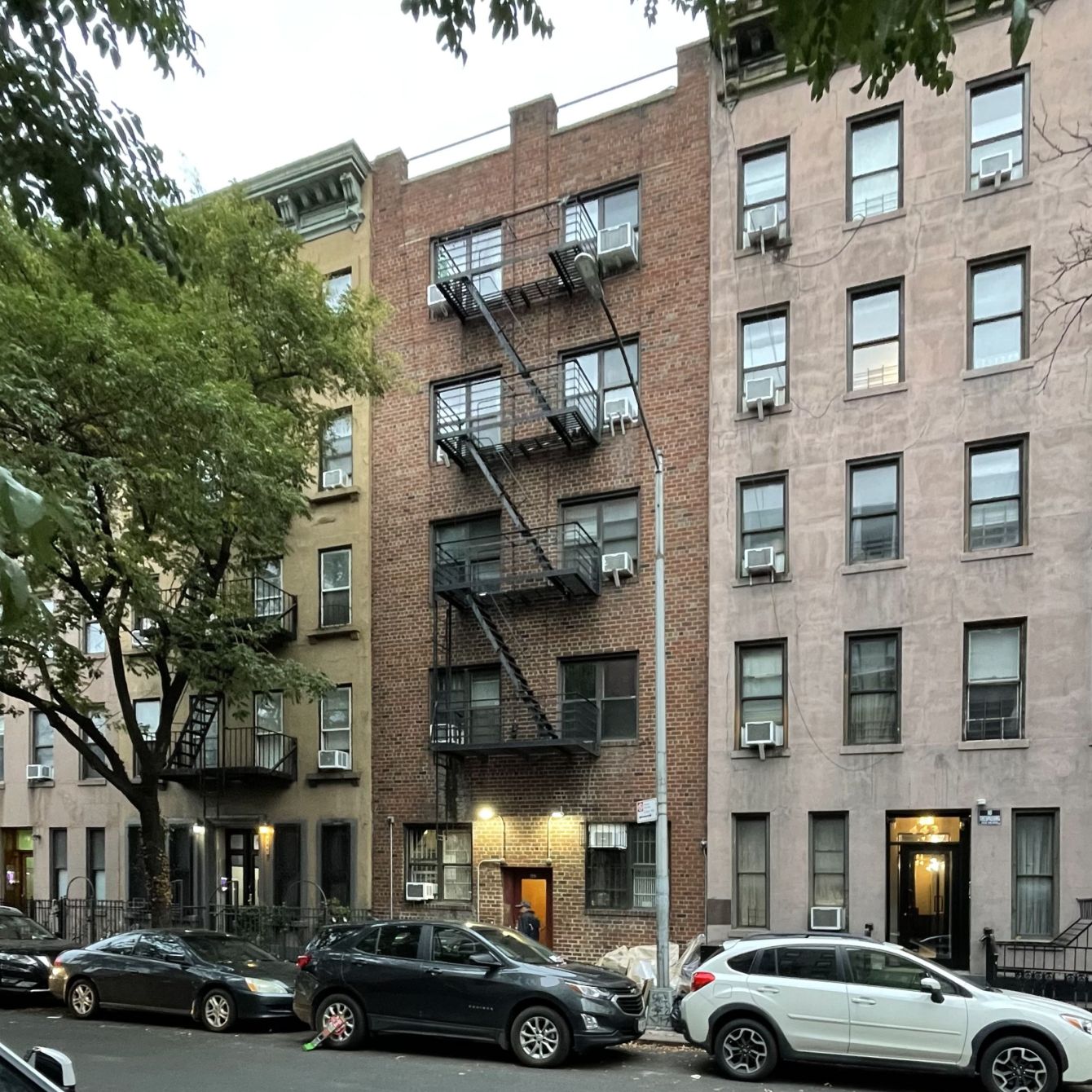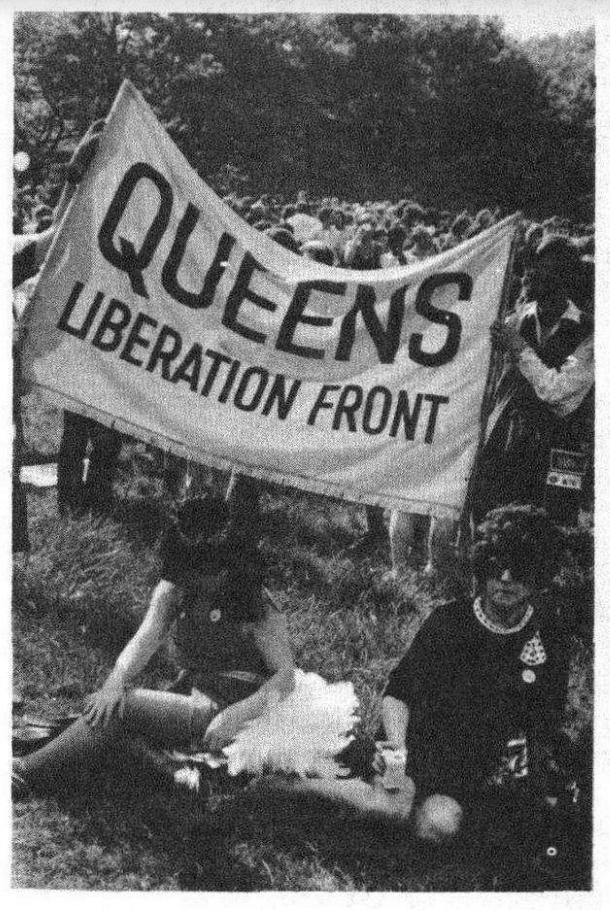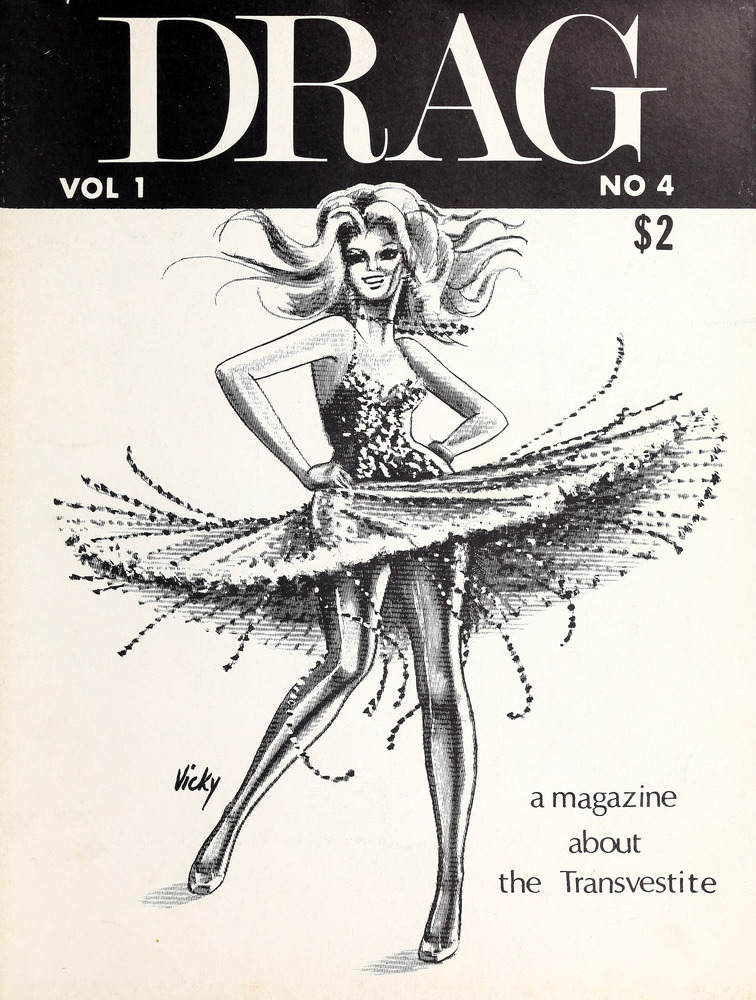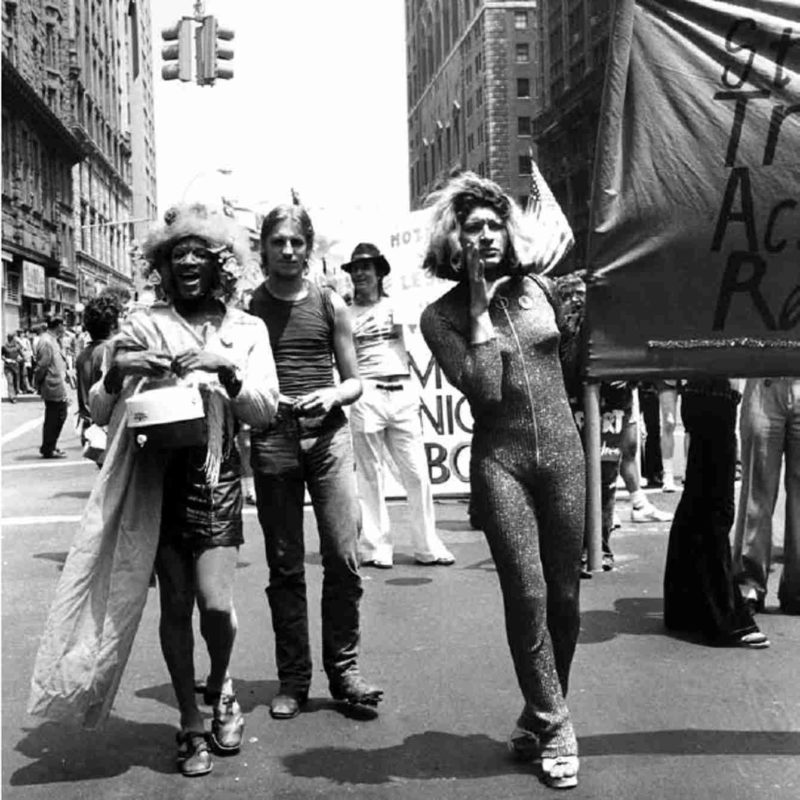
Lee G. Brewster Residence
overview
Early trans activist and entrepreneur Lee G. Brewster lived in this building from 1972 to 1975, during which he helped push for transgender rights and acceptance post-Stonewall, directed the activist organization Queens Liberation Front, and published Drag magazine.
Brewster also first operated the Mardi Gras—a mail order clothing business that catered to drag queens, gender variant people, and others seeking his inventory—in his apartment before turning it into a boutique at a separate retail location.
History
Lee G. Brewster (1943-2000) was born in a log cabin in Honaker, Virginia. His father was a coal miner, and he was raised in West Virginia. Brewster worked as a file clerk for the FBI during the 1960s, but was fired after he was arrested and outed as gay. He then relocated to Manhattan where he became involved in the pre-Stonewall homophile movement in a fundraising position for the Mattachine Society, Inc. of New York.
One of Brewster’s fundraising tactics was throwing balls for “cross-dressers,” and in the late 1960s, he began organizing his own drag balls because some, more conservative members of the Mattachine Society disapproved of cross-dressing, as it was characterized at the time.
At a ball held on October 31, 1969, Brewster announced he intended to start a clothing business for drag queens, gender variant people, and others seeking his inventory. He initially ran the business as a mail order operation from his residence at 445 West 48th Street in Hell’s Kitchen. As the business grew during the 1970s, Brewster opened a commercial retail location, known as the Mardi Gras Boutique, at 565 Tenth Avenue. In 1989, the store relocated to a larger space at 400 West 14th Street in the Meatpacking District where it would remain until its closure in 2000 upon Brewster’s death.
Brewster was also a founding member and the inaugural director of the activist organization Queens Liberation Front (QLF). QLF’s initial goals were to advocate for the rights of gender variant people, as well as gay men who occasionally dressed in drag, to congregate (for events such as drag balls and dances) and for the right to dress as they saw fit. The organization also participated in speaking engagements on the issue of cross-dress to help finance their activities. Other early members included Bunny Eisenhower, Bebe Scarpe, Chris Moore, and Vicky West. QLF’s office was located at 445 Tenth Avenue (demolished).
QLF also opposed the exclusion of transvestites, drag queens, and other gender variant people from the gay liberation movement that emerged following the Stonewall uprising. The group officially began operations by participating in the first Christopher Street Liberation Day March (now known as the NYC Pride March), held in June of 1970. The organization contributed financial support to the march, and its officers marched wearing high heels despite the threat of arrest for cross-dressing. One carried a sign stating, “WE’RE ONLY NUMBER TWO BUT WE TRY HARDER,” and on the back it read, “SECOND CLASS CITIZENS, THAT IS.”
From 1970 to 1971, QLF mounted a successful legal challenge that overturned a city ordinance against cross-dressing. They also collaborated with other New York City-based organizations such as the Street Transvestite Action Revolutionaries (STAR) and the Gay Activists Alliance.
The group experienced frequent clashes with lesbian feminists, who saw drag queens as enacting an offensive parody of “real” women. At Christopher Street Liberation Day in 1973, activist Jean O’Leary of Lesbian Feminist Liberation attempted to block STAR’s Sylvia Rivera from taking the stage at the Gay Pride rally in Washington Square Park. Rivera eventually broke through and delivered a fiery speech in which she indicted the gay movement for its exclusion of drag queens (persons who today may identify as transgender and queer) and their concerns. Brewster subsequently mounted the stage and echoed Rivera’s sentiments before throwing a Queens Liberation Front banner into the crowd. In a 1989 interview with journalist Eric Marcus, O’Leary said she regretted her treatment of Rivera, and her views of trans and gender variant people had evolved since the 1970s.
Brewster left the movement in 1974 due to the hostilities faced by drag queens and to concentrate on the Mardi Gras Boutique and Drag magazine. Though the precise date is unknown, Queens Liberation Front likely disbanded around this time as well.
Beginning in 1969, Brewster’s company, Lee’s Mardi Gras Enterprises, Inc., published Drag, and Vicky West of Queens Liberation Front illustrated the magazine’s cover art. During its early years, the magazine helped fund QLF’s activities. Drag had a national reach, and each issue contained articles, editorials, and photos of drag queens and covered topics related to cross-dressing, drag balls, civil rights demonstrations, and profiles of popular drag queens of the day. The magazine was published throughout the 1970s and 1980s and functioned as a print extension of Brewster’s advocacy and entrepreneurship.
Brewster died in 2000 at age 57 from cancer. As his friend and Mardi Gras employee Antoinette Scapinato recounted of his contributions to the transgender rights movement, “for want of a better phrase, he was really the mother to us all.”
Entry by Jeffry Iovannone, project consultant (October 2022).
NOTE: Names above in bold indicate LGBT people.
Building Information
- Architect or Builder: J.C. Burne
- Year Built: 1883; 1957-59 alteration
Sources
Abby Saypen, “A Little Bit of Our History: An Interview with Lee Brewster,” TV-TS Tapestry, January 1995.
Donna Cartwright, “Lee G. Brewster Obituary,” Transgender Tapestry, No. 91, Fall 2000.
Douglas Martin, “Lee Brewster, 57, Style Guru for World’s Cross-Dressers,” The New York Times, May 24, 2000.
“Jean O’Leary—Part 1,” Making Gay History: The Podcast (accessed August 31, 2022), bit.ly/3ecUDgL.
Lee Brewster, “Drag Queens Demonstrate.” Drag, vol. 1, no. 1, 1971.
“N.Y. ‘Queens’ Back City Down On Dance Permit,” The Advocate, November 11, 1970.
“Queens Cry Gay Sellout,” The Advocate, August 30, 1972.
“‘Queens’ Two Ways,” New York Mattachine Times, Nov.-Dec. 1970.
Susan Stryker, Transgender History, 2nd edition (New York: Seal Press, 2017).
Veronica Vera, “Forever Mardi Gras: An Interview with Bebe Scarpe about Vicky West and Drag Magazine,” Transgender Tapestry, No. 111, Winter 2006-2007.
Do you have more information about this site?
This project is enriched by your participation! Do you have your own images of this site? Or a story to share? Would you like to suggest a different historic site?




